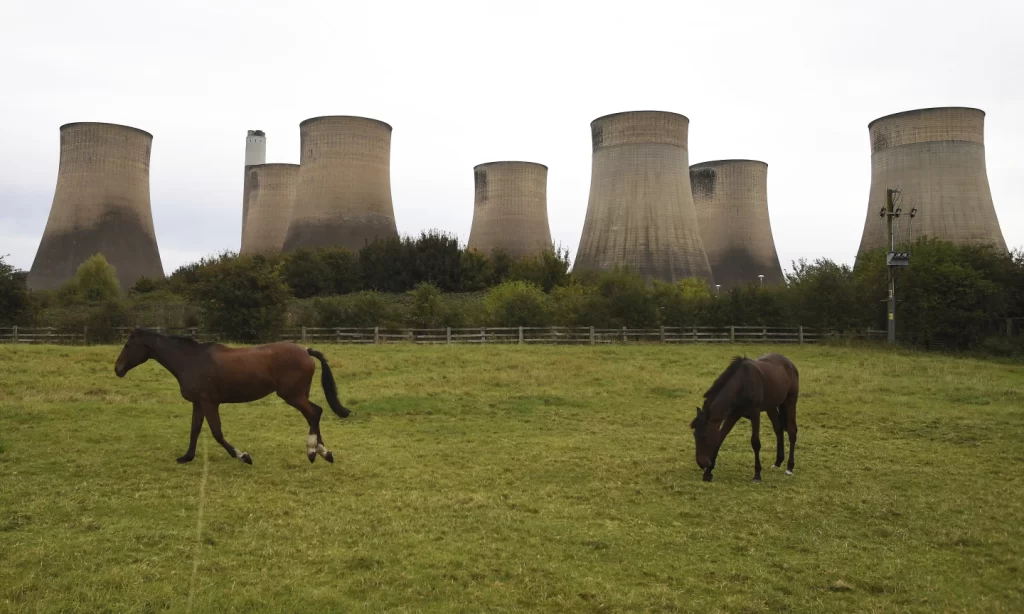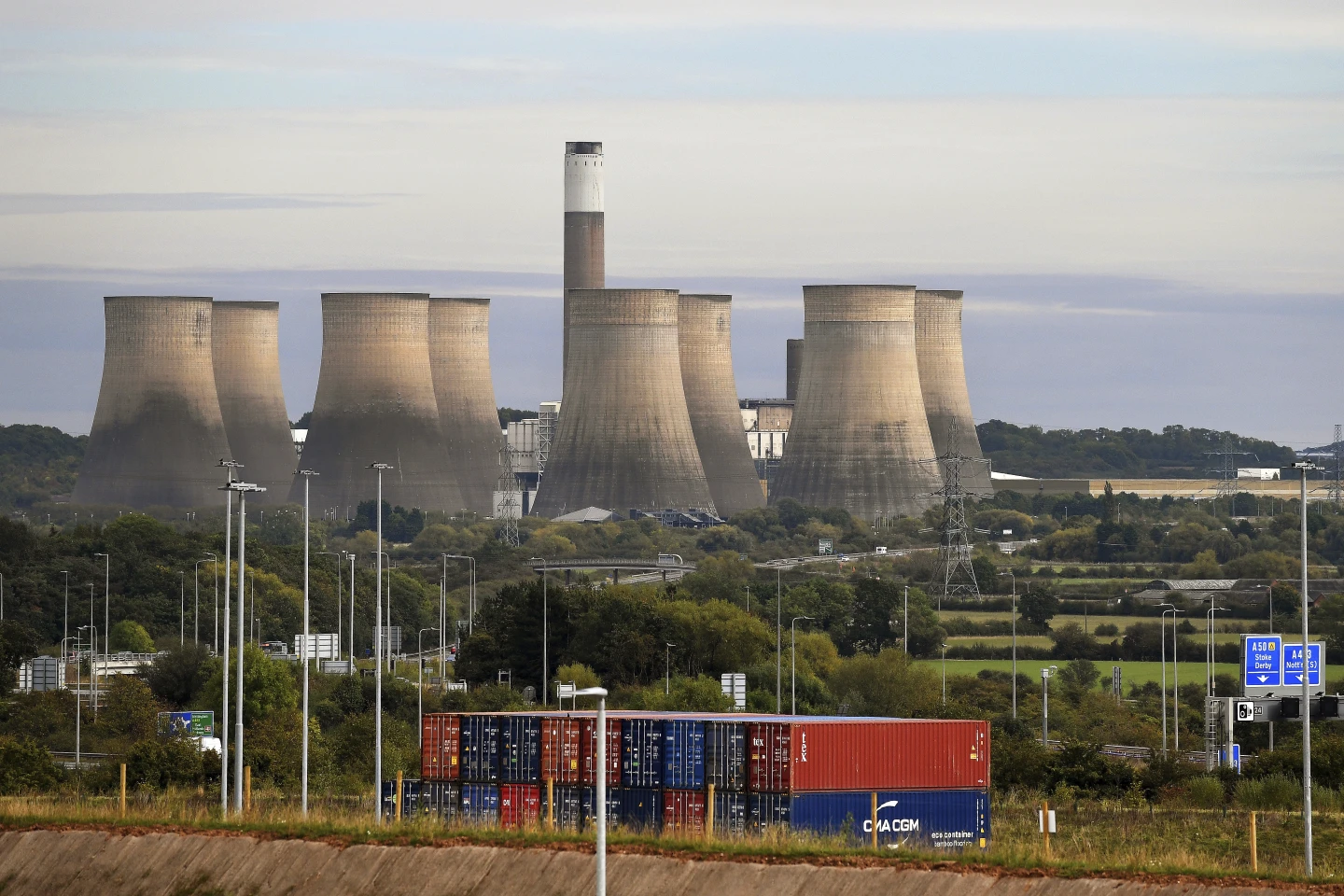Britain’s last coal-fired power station closed on Monday, marking the end of 142 years of coal-generated electricity in the country that pioneered the Industrial Revolution.

The Ratcliffe-on-Soar plant in central England completed its final shift at midnight, concluding over five decades of operation. This closure makes the United Kingdom the first G7 nation to phase out coal power entirely.
“When I started my career 36 years ago, none of us imagined a future without coal generation in our lifetimes,” said plant manager Peter O’Grady, describing the closure as “an emotional day.”
Energy Minister Michael Shanks hailed the event as a milestone, stating, “The era of coal might be ending, but a new age of good energy jobs for our country is just beginning.”

The plant’s owner, Uniper, reported that many of the 170 remaining employees will stay on during a two-year decommissioning process.
Britain’s transition away from coal has been rapid, in 1990, coal provided about 80% of the country’s electricity, by 2012, this had fallen to 39%, and in 2023, coal accounted for just 1% of power generation.
Currently, more than half of Britain’s electricity comes from renewable sources such as wind and solar power, with the remainder from natural gas and nuclear energy.
The closure of Ratcliffe-on-Soar coincides with the shutdown of the last blast furnace at the Port Talbot steelworks in Wales, resulting in nearly 2,000 job losses. Tata Steel, the plant’s owner, plans to replace the coal-dependent blast furnace with a cleaner electric furnace.

These closures mark significant shifts in Britain’s industrial landscape and energy policy, reflecting the country’s commitment to renewable energy sources and reduced carbon emissions.
The U.K. government aims to generate all of Britain’s energy from renewable sources by 2030, a goal that now seems more attainable with the end of coal-fired power generation.
As Britain moves forward in its energy transition, the focus shifts to expanding renewable infrastructure and addressing the economic impacts on communities historically dependent on coal and steel industries.
AP











